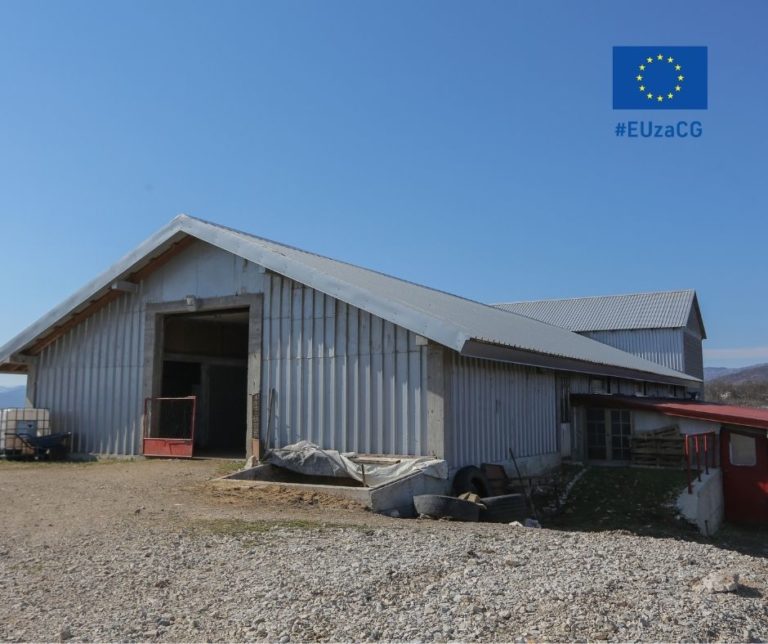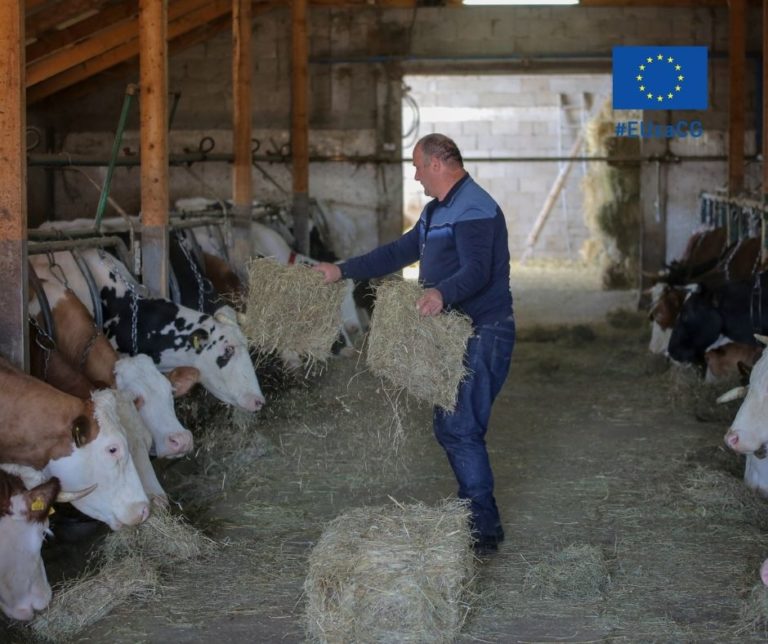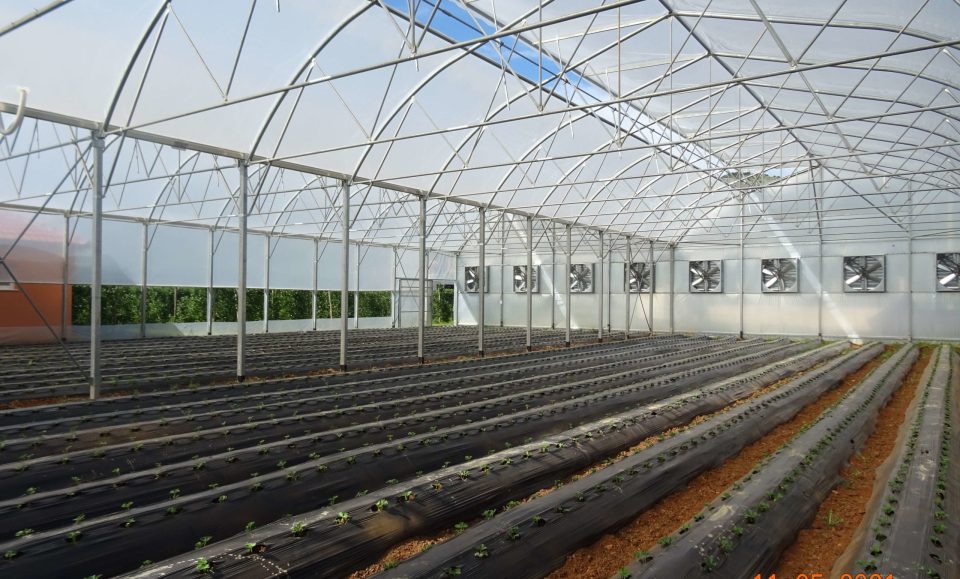The Instrument for Pre-Accession Assistance for Rural Development – IPARD II focuses on rural and agri-food areas of countries in the process of joining the EU.
posted on
- April 5, 2022
Nedic: IPARD helped me create a modern farm
When he was declared redundant in the army, Milenko Nedic turned to agriculture. The moment he had to decide what to do next, he remembered his farming parents. Crises couldn’t do anything to them, and now they can’t harm him either. The beginning was difficult, including bank loans and high interest rates. Then the opportunity arose to apply for IPARD calls.
“In 2011, when the first Midas programme came out, I applied for one part of the mechanisation. It was for a tractor and some of its attachments. At that time, it was said that it could not be obtained, that it was impossible, that it was difficult to pass it and so on. However, I passed all those controls, and I already had about fifteen cows. I got the mechanisation and that pushed me to move forward,” says Milenko Nedic.
Since then, Milenko has been regularly applying for IPARD calls. He says that, in the beginning, the procedure seemed complicated, but everything can be mastered with support by those who decide on the applications.
“Since these are large funds, a few of us have so much cash that we could complete it with the very source of our funds. Whoever has a “clean land and a clean farm” can pass the IPARD programme and receive a loan from the Development Fund,” Nedic explains.
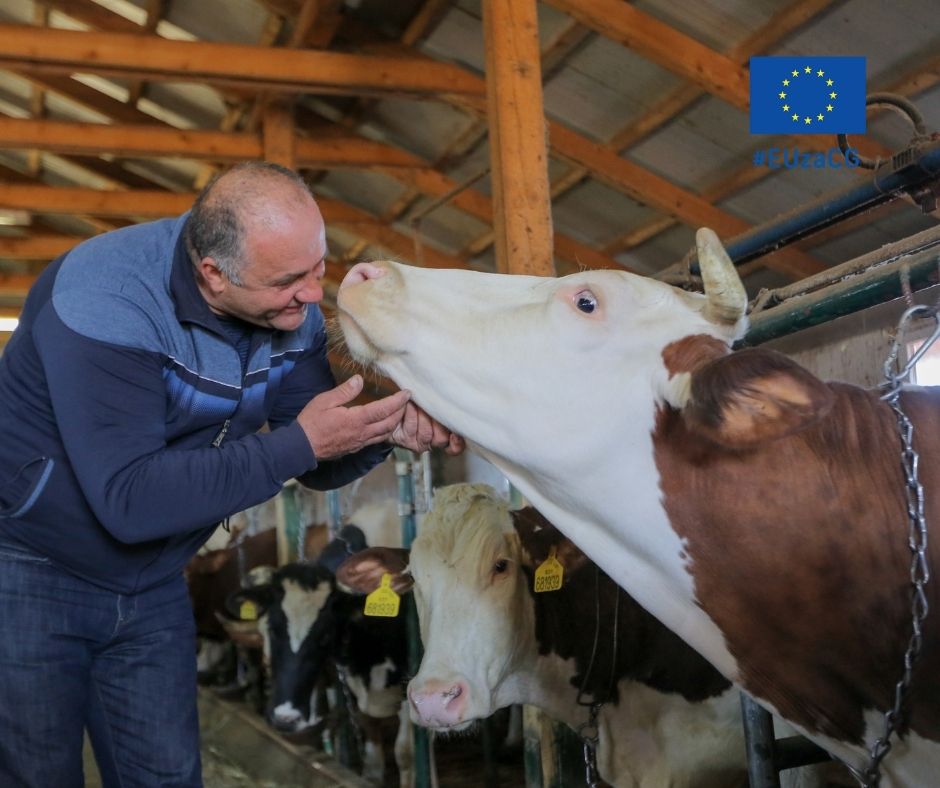
Through three IPARD calls, Milenko imported cattle from Germany and the Czech Republic for his farm, and there are now about fifty cows.
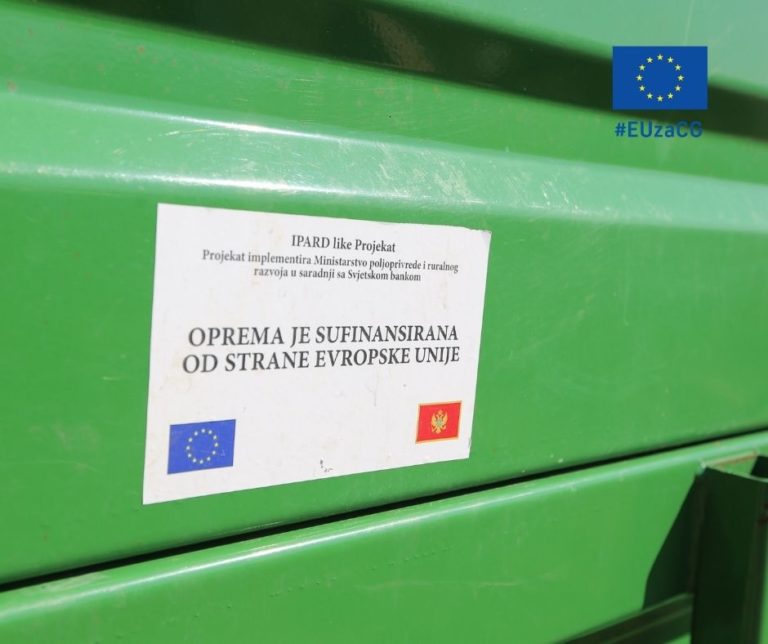
“Through the IPARD programmes, I managed to complete the mechanisation and obtain systems for milking, as well as all the means and equipment I need for the farm. The last project I worked on was worth about €80,000, of which €32,000 were mine and €48,000 I received as European money,” says Nedic.
That is why Milenko is convinced that without the IPARD projects, nine out of ten farmers would have to leave agriculture. There is no labour force willing to engage in agricultural work, so the mechanisation procured through IPARD calls is the only way to organise the farm. Because, says Milenko, when you have mechanisation, you can work alone.
“I would like to tell people who have their own land to engage in agriculture, to get off the streets. I want to tell these young people to return to the village and agriculture where they will earn their own money for their own work,” says Milenko Nedic, the farmer from Niksic.
Nedics is a family farm, but also a family firm where Milenko works with his wife and their two sons. The farm, says Milenko, provides them with a good life. It requires a lot of work, most of the money earned is invested in production again, but the farm is growing. New cows, new facilities, and new applications for the IPARD programme are planned.

